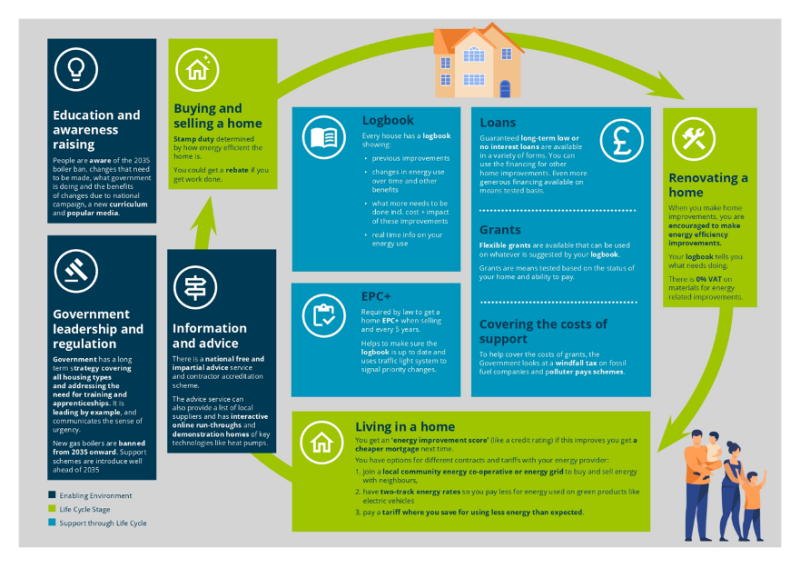Climate Change blog - citizens' panel on home energy decarbonisation
This month’s guest blog comes from Dr. Jake Ainscough, a leading researcher with the Climate Citizens project at Lancaster University. The projects just published its findings from a citizens' panel on home energy decarbonisation - how to tackle emissions from owner-occupier homes.
Climate Citizens is a project aiming to change how people engage with the creation of climate policy. With a particular focus on deliberative methods, we want to transform climate policy from something that happens to people, to something that happens with people.
At a webinar on 21st September, we launched a new report with the results of a citizens’ panel looking at the policies, support and incentives homeowners need to bring down emissions and save money on energy bills. The team brought together a group of home owners with advisers from the Climate Change Committee (CCC) to design people-friendly policies to help homeowners lower their energy consumption, and help the UK meet its legal target of net zero emissions by 2050.
Gas and electricity use in people’s homes currently accounts for about 15% of the UK’s total emissions. As the UK government works towards net zero, reducing dependence on gas and insulating homes to make them more efficient will become increasingly urgent – and will help households financially as they face spiralling energy bills.
The panel of 24 home owners – demographically representative of UK homeowners in terms of age, ethnicity, income and attitudes to climate change – came together with policy experts and researchers. Over several sessions, panellists built their knowledge about how home energy use impacts climate change, and what could be done to reduce emissions and bills. The panel, alongside CCC advisers, then co-designed policies, solutions and incentives they thought would work best for homeowners.
The panel designed a package of support that covers the full ‘homeowner lifecycle’ – from buying, renovating and living in homes. As well as calls for new legislation to steer away from gas boilers and national awareness campaigns, the citizen-designed incentives include:
- Stamp duty being determined by how energy efficient the home is
- A logbook for every home outlining previous energy improvements made and what else is needed in future
- Low or no interest loans for energy-efficient improvements
- ‘Energy improvement score’ incentives (like credit ratings) aligned to reduced mortgage rates.
These are outlined in the following infographic:
The Climate Citizens project has also produced a report for the CCC on the role of deliberation in the climate policy process. Seven contributions of deliberative methods are identified from a review of 29 case studies from a range of policy areas. The report concludes with potential actions the CCC and government could take to take advantage of deliberation methods in climate policy making. The findings of this report were included in the CCC’s 2022 Progress Report to Parliament.
Going forward, we will be working with our policy partners to design and test new ways of embedding meaningful deliberation into how climate and energy policies are designed. And we are excited to be inviting applications to join the Climate Citizens project as a Visiting Fellow. The scheme is open to anyone working on public engagement on climate and energy issues in any capacity, including (but not limited to): civil servants, public engagement consultants, professional facilitators, academics at any careers stage including PhD researchers, and researchers or policy professionals from the private sector, think tanks, NGOs or trade unions.
A maximum of four Fellowships are available for a total duration of three months each. We are open to any ideas for how the Fellowships might be used within the scope of the themes addressed by the Climate Citizens project.
Further information
- Find out more about the climate citizens project here.
- Read the full Lancaster University report and watch the recording of the launch webinar.
- The Climate Citizens and Lancaster University report for the CCC, The role of deliberative public engagement in climate policy development, is available here.
- More information about the Climate Change Committee can be found here.
- The CCC report, Progress in reducing emissions- 2022 Report to Parliament is available here (p454).
-
More information on the Climate Citizens Visiting Fellowship Scheme is available here.
Author
Dr. Jake Ainscough, Senior Research Associate, Lancaster University.

